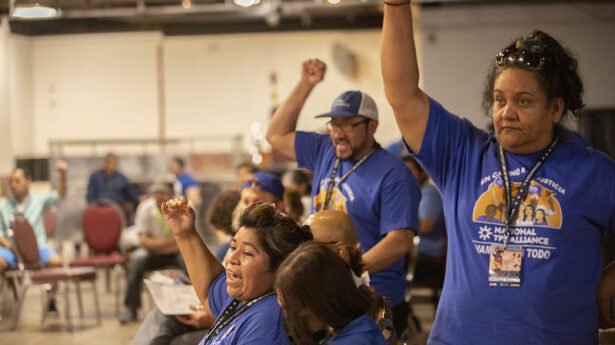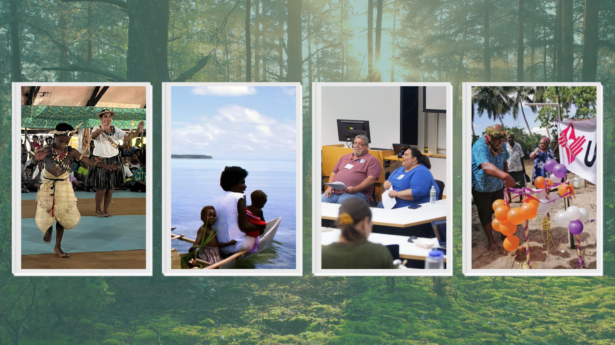The Unitarian Universalist Service Committee advances human rights through grassroots collaborations.
Holding Hope After Helene: Love at the Center of Community Response

By Michael Kourabas on November 1, 2024
On September 27, Hurricane—and, ultimately, Tropical Storm—Helene made landfall in Big Bend, Florida. Before leaving for the Atlantic Ocean, the storm would leave behind “a path of destruction stretching over 500 miles from Florida to the Southern Appalachians,” and bring unprecedented devastation to western North Carolina. “Torrential rainfall” and “three days of extreme, unrelenting precipitation” in North Carolina resulted in “catastrophic flooding and unimaginable damage” in the North Carolina mountains and foothills.
Other impacts included landslides, 1,200 road closures, roughly one million people without power, and a lack of food, water, and medical care. The storm had been declared the “deadliest” in North Carolina’s history, with state officials confirming more than 200 people had been killed by the storm.
Cruelly, Helene had a disparate impact on the communities likely to suffer the most from the impacts of such a storm. As the U.S. Census Bureau reported, “Counties in declared disaster zones tended to have higher shares of older adults, people with disabilities, and mobile homes than those outside the disaster areas.”
These impacts were compounded for people in migration in the state, as information about how to access recovery aid was often only provided in English and undocumented people—or those who, based on their appearance or language, may be assumed to be undocumented—were understandably hesitant to approach government authorities (i.e., those delivering aid), fearing potential deportation.
Shortly after the storm, UUSC heard first-hand of these and other challenges. For example, people in migration in North Carolina—many of whom come from Mexico, El Salvador, and Honduras, are undocumented, and are the backbone of the apple and peach industries in the state—had been misinformed that Immigration and Customs Enforcement (ICE) agents were in the area, exacerbating already-held concerns about accessing aid.
In response, organizations trusted by the community of people in migration there, including Day One Relief and Carolina Migrant Network, began hand delivering cash and other much-needed aid (water, rice, beans). These and other organizations expressed a “dire need” for water, particularly large water jugs that can be easily filled and transported. With the reopening of the highway connecting Charlotte and Asheville, the UU State Action Network in North Carolina (UU Justice Ministry of North Carolina) informed UUSC they would be able to directly purchase these water containers and get them to those doing daily deliveries into the western part of the state.
To support these and other efforts to ensure that people in migration in North Carolina, especially undocumented people, can access the support they need to recover from the storm, UUSC intends to provide a grant to the UU Justice Ministry of North Carolina.
This small grant will support efforts to ensure that those in migration in the western part of the Tar Heel state are provided adequate, potable water as they address the compounding issues of forced displacement, xenophobia, racism, and criminalization—forms of oppression often rooted in identity.
Many may ask, “Why not donate to an organization supporting American citizens?” The answer is simple and complex. Most direct service and first response organizations provide critical relief services to American citizens in a range of socioeconomic conditions. However, during times of disaster, undocumented people in migration—on top of being criminalized and oppressed—are often invisibilized, their needs routinely ignored and discounted because of their immigration status, race, and their English language proficiency.
As we strive to put love at the center of our work, we are reminded that the generosity we show to those in migration is a direct reflection of our interdependence. We know, intrinsically, that the confluence of these two values can lead to societal transformation, a radical change that weaves us together as one local and global pluralistic community with justice and equity underpinning how we show up for one another.
Image credit: Shutterstock – TajdidProtik

